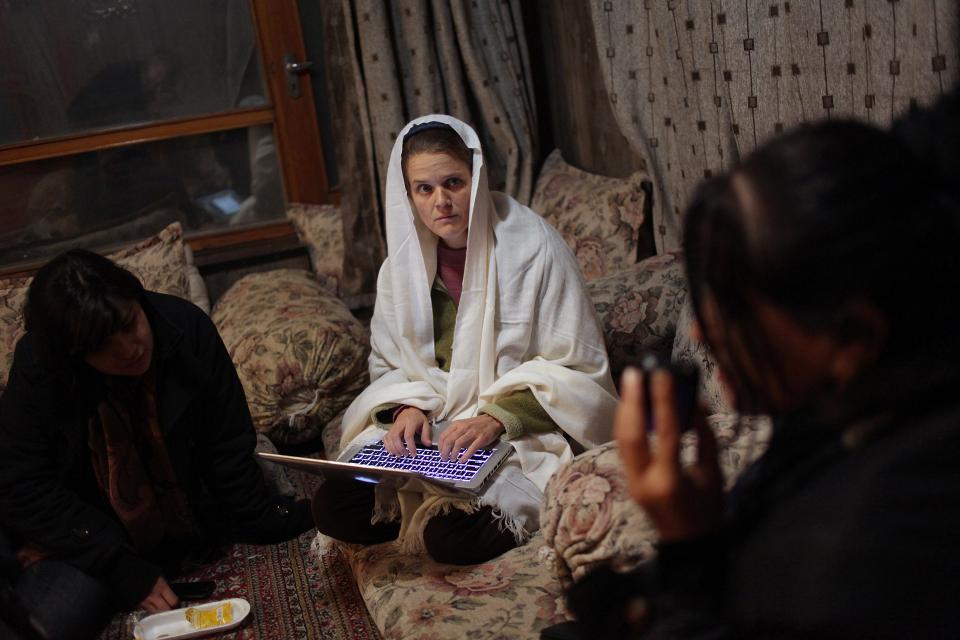Field Notes from Afghanistan’s Future, and Our Own

The Pulitzer Prize-winning New Yorker writers Eliza Griswold and David Rohde join the Pulitzer finalist Anand Gopal for a conversation with the magazine’s editor, David Remnick, about what the U.S. got wrong during its two decades in Afghanistan, how the lives of Afghans will transform under Taliban rule, and whether the U.S. could waver in its other commitments abroad. This event will feature an extended Q. & A. with questions submitted by subscribers.
Anand Gopal writes on war, cultural conflict, democracy, and religion in the Middle East and South Asia for The New Yorker, as well as for the Times, Harper’s, and the Wall Street Journal. He has received a number of honors for his reporting, including a George K. Polk Award, a National Magazine Award, and an Overseas Press Club Award. In 2015, his book, “No Good Men Among the Living,” which revealed the hubris underpinning the American occupation of Afghanistan, was a finalist for the Pulitzer Prize in General Nonfiction and a National Book Award. Gopal is an assistant research professor with the Center for the Study of Religion and Conflict and the Center on the Future of War, at Arizona State University.
Eliza Griswold, a contributing writer covering religion, politics, and the environment, has been writing for The New Yorker since 2003. She has written and translated five books of nonfiction and poetry, including “I Am the Beggar of the World,” a collection of Afghan women’s folk poetry, which was awarded the PEN Translation Prize. She is the author, most recently, of a collection of poems entitled “If Men, Then.” In 2019, her book “Amity and Prosperity: One Family and the Fracturing of America,” a Times Notable Book and a Times Critics’ Pick, won the Pulitzer Prize for General Nonfiction. Griswold has held fellowships at Harvard Divinity School, the Nieman Foundation, the Guggenheim Foundation, and the New America Foundation, among others, and has been awarded various prizes, including the J. Anthony Lukas Prize, and the Rome Prize for her poetry. She is currently a Distinguished Writer in Residence at New York University.
David Remnick has been the editor of The New Yorker since 1998. He joined the magazine in 1992, after ten years with the Washington Post, where he was a Moscow correspondent. He is the author of several books, including “The Bridge,” a biography of Barack Obama; “King of the World,” about the life of Muhammad Ali; and “Lenin’s Tomb,” for which he received the Pulitzer Prize for nonfiction. Under Remnick’s leadership, The New Yorker has become the country’s most honored magazine, garnering fifty-three National Magazine Awards. In 2016, it became the first magazine to receive a Pulitzer Prize for its writing, and to date has won six Pulitzers, including the gold medal for public service.
David Rohde is an executive editor of newyorker.com. He is a former reporter for Reuters, the New York Times, and the Christian Science Monitor. He was awarded a Pulitzer Prize for international reporting, in 1996, for stories that helped expose the Srebrenica massacre during the war in Bosnia, and, in 2009, he shared a Pulitzer Prize with a team of Times reporters for coverage of Afghanistan and Pakistan. He is the author of, most recently, “In Deep: The F.B.I., the C.I.A., and the Truth about America’s ‘Deep State.’ ” His other books are “Beyond War: Reimagining America’s Role and Ambitions in a New Middle East”; “A Rope and a Prayer: The Story of a Kidnapping,” co-authored with his wife, Kristen Mulvihill; and “Endgame: The Betrayal and Fall of Srebrenica, Europe’s Worst Massacre Since World War II.”
-- from the event page
The New Yorker Live events are available to New Yorker subscribers only—no registration required, though you will need to be signed in to its Web site.
At its scheduled time (5:30-6:30 p.m. EDT on September 30), the live stream will play on the event page and will be followed by a Q. & A. session. Closed captioning is available.
-- from the event page
